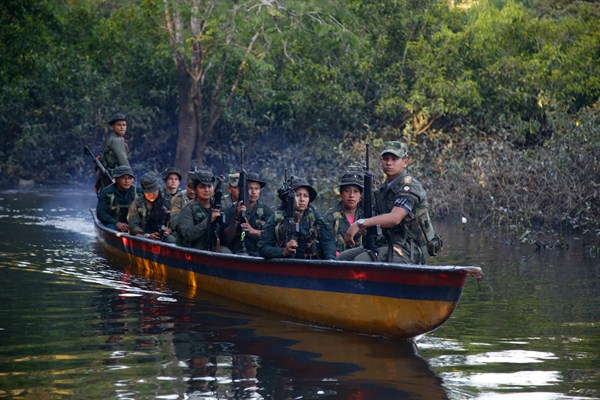This is it. As of Aug. 24, after 52 years of fighting and four years of negotiating, the Colombian government and the Revolutionary Armed Forces of Colombia, or FARC, have a peace accord. The FARC will cease to be one of the hemisphere’s largest generators of violence and will transition into a peaceful political movement. Already, the past 13 months have been the least violent period in Colombia since the conflict with the FARC began in 1964. And at midnight on Aug. 29, the government and the leftist guerrillas made it permanent, calling a definitive halt to all hostilities.
The negotiations took place with only a few ruptures or violations of the ground rules, but they weren’t easy. The accord—297 legalistic pages of plans, promises and compromises—is the product of more than 50 rounds of 15-day talks in Havana, including a marathon of closed-door sessions near the end. The process was skillfully supported by Norway, Cuba and other countries, as well as the assiduous efforts of experts and subcommittees. Yet the talks may be remembered as the easy part compared to what lies ahead.
The very next step is for the FARC to hold its final conference in the Yari plains of south-central Colombia next week, where hundreds of the group’s leaders throughout the country must ratify the accord. This should happen smoothly, but it could also be the point at which we learn whether disagreements exist among the group’s midlevel leadership. There may be no objections to the accord at all; the FARC is a very hierarchical organization, and many leaders spent time as negotiators in Havana. But in July, the FARC leadership had to expel one unit—the 200-member 1st Front in Guaviare, just north of the Yari plains—after it voiced its opposition.

